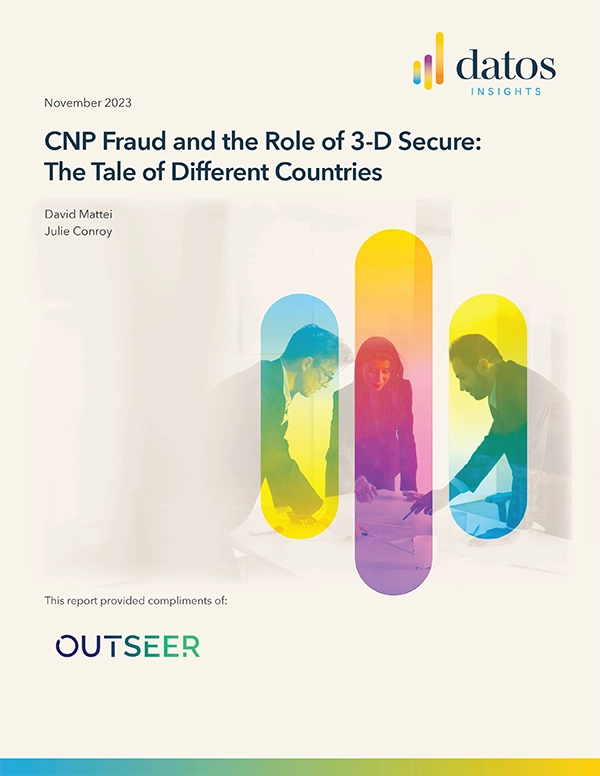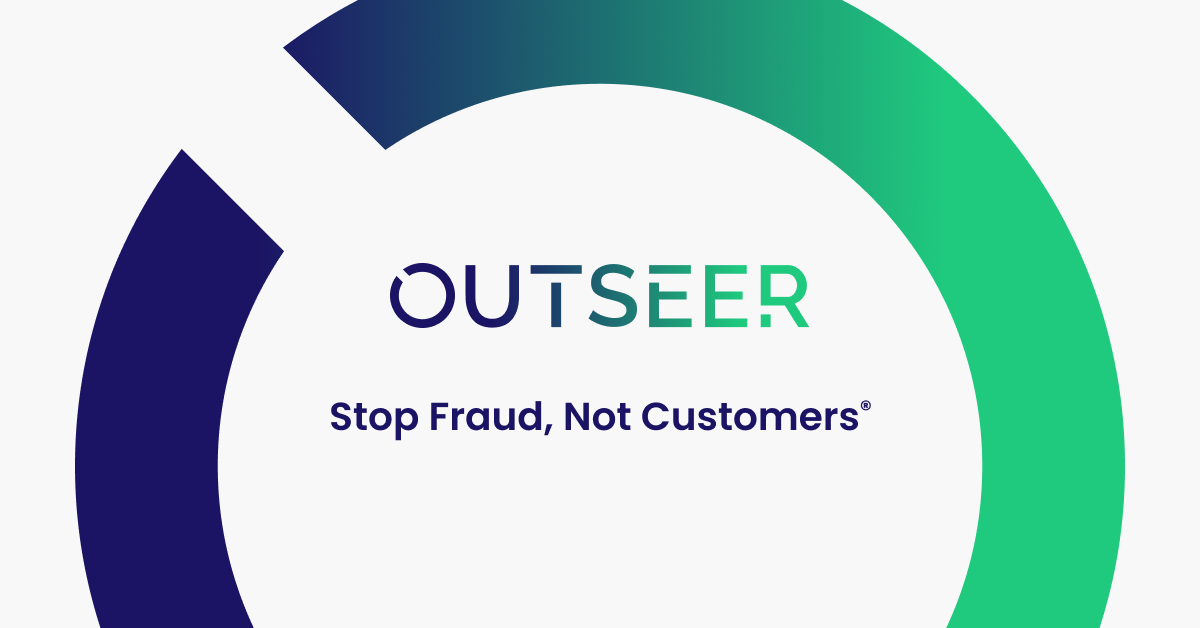E-commerce continues its upward climb as consumers continue to increase their propensity for digital commerce. However, ever since chip cards have effectively addressed counterfeit fraud, e-commerce still struggles to find a similar solution to mitigate card-not-present (CNP) fraud. 3-D Secure (3DS) is one of the more promising solutions but usage is inconsistent globally and therefore has varying results.
This Datos Insights research study, sponsored by Outseer, entailed a survey of 20 fraud executives at large financial institutions (FIs) in Q3 2023 in Australia, Canada, Germany, the U.K., and the U.S. Given the size of these countries and their varying regulatory landscapes, these results provide a directional indicator of the trends in these markets. The key findings from this report follow:
- U.S. CNP fraud losses are on the rise: Datos Insights estimates U.S. CNP fraud losses will exceed US $9 billion in 2023 and approach nearly US $13 billion by 2026, as fraudsters continue to heavily target CNP, particularly in markets that do not require strong authentication for e-commerce transactions.
- Location matters for higher authorization rates and lower CNP fraud losses: Many jurisdictions have regulatory requirements or payment network mandates for strong customer authentication on e-commerce transactions. Jurisdictions with customer authentication mandates have better outcomes for CNP authorization approval rates and fraud prevention than in non-mandated geographies.
- As 3DS usage increases, CNP fraud losses decrease in regulated markets: In non-regulated markets like North America, 3DS usage averages 2.7% of all CNP transactions yet fraud losses on 3DS-protected transactions are nearly 6 times higher than for all CNP transactions. The inverse is true in regulated markets such as Europe and Australia where 25% to 50% of CNP transactions are protected by 3DS and fraud losses are 3 times to 6 times lower than for all CNP transactions.
- 3DS is highly rated as one of the better CNP risk mitigation tools available: Half of the FIs say that 3DS is better than other CNP fraud controls they have in place. Reasons include enhanced data not available in the authorization message, risk-based assessments leveraging machine learning models, and ability for user authentication. U.S. FIs, in particular, have better perceptions of 3DS compared to two years ago when nearly half of them indicated it was worse than other CNP fraud controls.
- 3DS data is useful in authorization fraud systems: Fifteen FIs currently support or plan in the next one to two years to send 3DS data to their transaction authorization fraud platforms. This is good progress from two years ago when a smaller number of FIs integrated or planned to integrate these two systems.
Get your copy of the report today!











